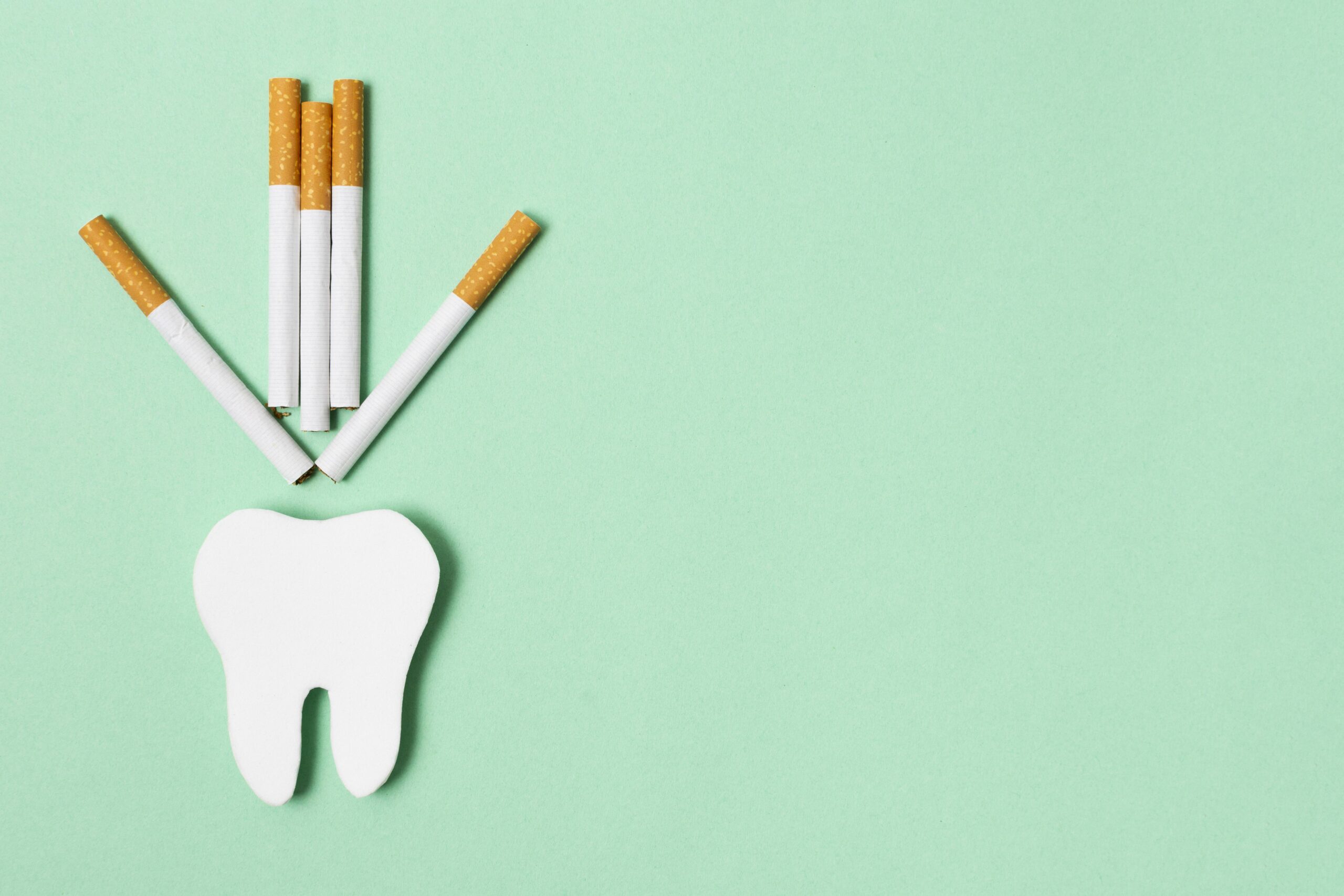Gum Disease and Smoking: A Deadly Combination For Your Oral Health
By :
Affordable Dentist | September 20, 2023
A healthy smile is a valuable asset, but it's one that many unwittingly put at risk. The culprits? Smoking and gum disease is a devastating duo that can wreak havoc on oral health. This comprehensive guide will delve into the detrimental relationship between smoking and gum disease, exploring how tobacco use intensifies the risk of periodontal problems. Whether you're a smoker yourself or concerned about a loved one's habits, understanding the perils of this deadly combination is crucial. By the end of this article, you'll have insights into the consequences, prevention, and treatment options available to combat gum disease in the face of tobacco use.
The Menace of Gum Disease
Before we dissect the impact of smoking on gum health, let's understand what gum disease entails. Gum disease, or periodontal disease, is a progressive condition affecting the tissues surrounding and supporting your teeth. It typically begins with gingivitis, characterized by red, swollen gums that bleed easily when brushing or flossing. If left untreated, it can escalate into periodontitis, a more severe form of gum disease that can lead to tooth loss.
The Connection Between Smoking and Gum Disease
Increased Risk
Smoking is a well-established risk factor for gum disease. Research has shown that smokers are twice as likely to develop gum disease compared to non-smokers. The harmful chemicals in tobacco weaken the immune system's ability to fend off infections, making the gums more susceptible to bacterial invasion.
Reduced Blood Flow
Smoking restricts blood flow to the gums, impairing their ability to repair and regenerate. This diminished blood supply hampers the gums' capacity to fight off infection and heal from the early stages of gum disease.
Masking Symptoms
One of the insidious aspects of smoking is that it can mask the symptoms of gum disease. Nicotine constricts blood vessels, reducing inflammation and bleeding, which are typical signs of gum disease. As a result, smokers may not realize they have a problem until the disease has progressed significantly.
The Consequences Of This Deadly Duo
Tooth Loss
Smoking and gum disease together create a perfect storm for tooth loss. Gum disease weakens the supporting structures of the teeth, and smoking further compromises oral health. This combination can lead to loose teeth that eventually need extraction.
Compromised Healing
Smokers with gum disease experience slower and less effective healing following dental procedures such as cleanings, scaling and root planing, and even periodontal surgery. This delayed healing can exacerbate the condition.
Increased Severity
Gum disease tends to be more severe in smokers than in non-smokers. The disease progresses faster, resulting in deeper periodontal pockets, more extensive tissue damage, and greater tooth loss.
Breaking the Deadly Cycle
Quit Smoking
The most effective step you can take to protect your gums is to quit smoking. It's a challenging journey, but the benefits extend far beyond your oral health. Seek support from a healthcare professional or a smoking cessation program to increase your chances of success.
Oral Hygiene
Maintain impeccable oral hygiene practices. Brush your teeth at least twice a day, floss daily, and use an antiseptic mouthwash to reduce bacterial load. Regular dental check-ups are essential for monitoring your gum health.
Professional Periodontal Care
If you're a smoker or former smoker and suspect gum disease, seek professional help promptly. Dentists and periodontists can provide specialized care, including deep cleanings and surgical interventions if necessary. With the treatment of periodontal gum disease at the right time, you’ll be able to counter the fatal consequences of this condition effectively.
Smoking and gum disease form a perilous partnership that jeopardizes your oral health and overall well-being. However, breaking free from this deadly combination is never too late. By quitting smoking, practicing diligent oral hygiene, and seeking professional care, you can regain control over your gum health and pave the way for a brighter, smoke-free smile. If you're in Grand Prairie, TX, and seeking periodontal gum disease treatment, consult with a dentist in Grand Prairie or a periodontal specialist. They can provide tailored solutions to help you combat gum disease and protect your precious smile from the ravages of tobacco use. Your journey to healthier gums and a smoke-free life begins with the first step – seek help today.


